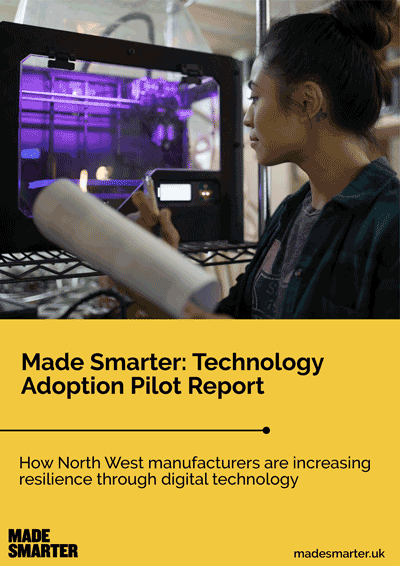
A new survey by the Made Smarter North West Pilot makes interesting reading. The pilot programme, set up to help small and medium manufacturers navigate through Industry 4.0 and the adoption of digital technology, found considerable enthusiasm for the new tools and techniques (page 6).
As many as 75% of respondents reported investing in new technology in the last three years. The survey found the greatest investment had been in industrial machinery and automation (29%), additive manufacturing (21%) and industrial IT infrastructure (18%). Mobile devices, wearable technology, and big data and analytics also had wide appeal.
Fewer businesses had opted for augmented, virtual or mixed reality simulation and testing, or AI and robotics. (An article in this issue (page 32) describes how the use of wearable technology and augmented reality to provide “over the shoulder support” from remote experts brought productivity increases of 200% in off shore installations).
Made Smarter also found that the adoption of new technology had increased companies’ resilience and helped them respond to Covid-19 – for example by switching production to make pandemic-related items, increasing production to meet demand surges, and maintaining operations remotely to reduce the number of staff present.
But too many companies, the survey finds, are failing to adopt a strategic or holistic approach across the whole organisation. As well as potentially wasting time and money, this approach risks ending up with “disparate and disconnected equipment”, and the expected gains – increased productivity and competitiveness, reduced costs, and faster growth – may not be realised.
Made Smarter recommends an approach that starts from data and systems integration to gain a holistic view before adopting other technology.
The Made Smarter pilot was set up to drive forward digital technology adoption among SME manufacturers in north-west England, by providing them with specialist advice and guidance. Over the last two years the project team has engaged with hundreds of manufacturers in the region.
As we recently reported (M&E newsletter, October), a report from Make UK said the pilot “has been impressive in digital adoption, with 20% of small businesses in the area already at the highest level of technology adoption”. This was second only to the South East, and well ahead of the West Midlands, for example.
Make UK concluded: “The research shows clearly that the technology adoption model is working, making a strong case for national rollout.”
We wholeheartedly concur with that conclusion. With businesses currently facing unprecedented pressures, an extension nationally must be a priority for 2021.

David Fowler MIStructE, Editor
david@maintenanceandengineering.com
@MaintOnLine

